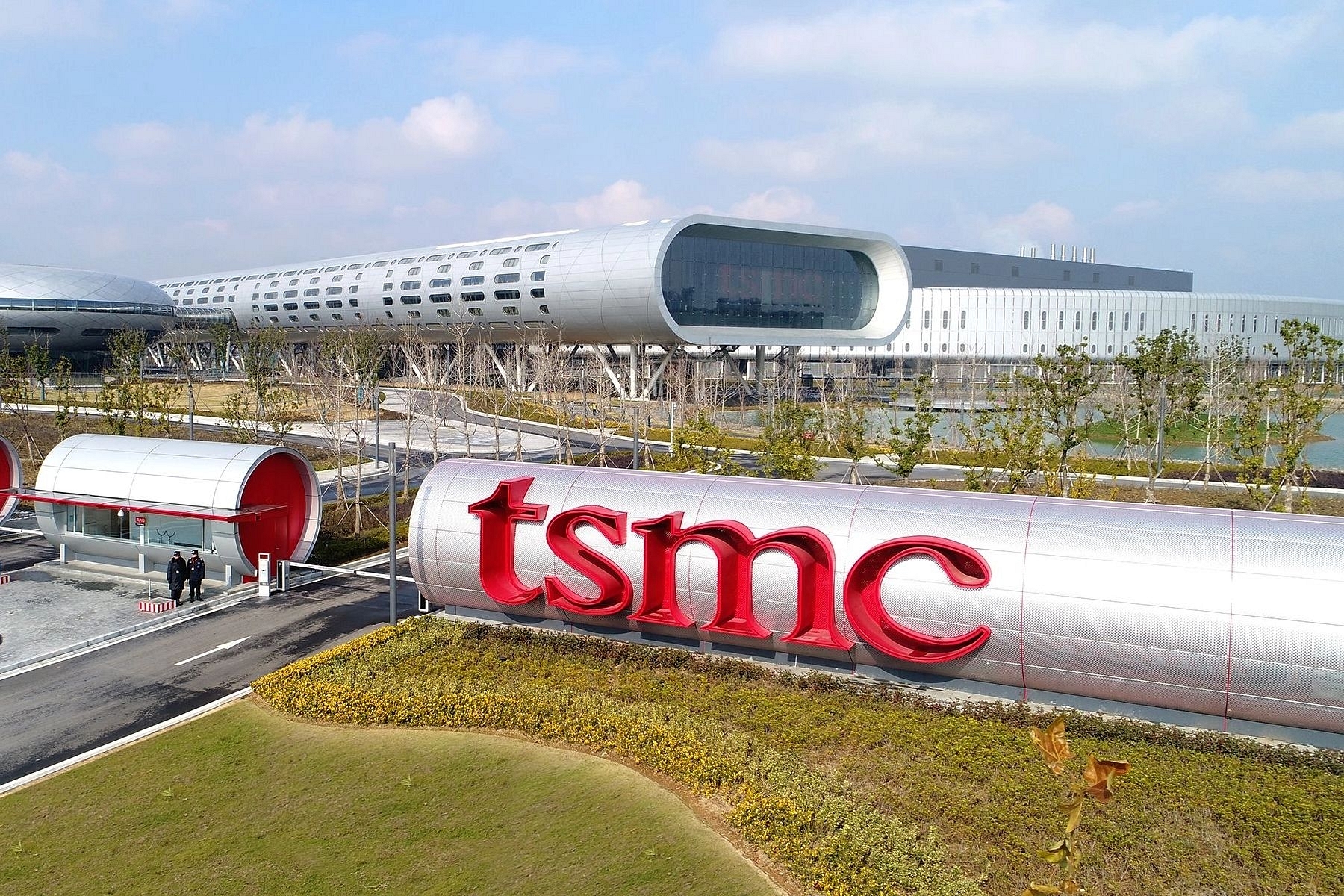Analysis
Chip Wars: New Wave Of Investments Propel Chip Manufacturing, 29 High-Volume Semiconductor Fabs To Be Build In Next Few Years
- 29 fabs expected to be established over the next few years as the industry pushes to address the global chip shortage.
- The new wave of chip foundry investment is driven by the accelerating demand for chips across a wide range of markets including communications, computing, healthcare, online services and automotive.
- China and Taiwan will lead the way in the new fab construction starts with eight each, followed by the Americas with six, Europe/Mideast with three, Japan and Korea with two each.

TSMC Fab factory
Semiconductor manufacturers worldwide will commence construction on 19 new high-volume fabs by the end of this year and break ground on another 10 in 2022 , according to a quarterly World Fab Forecast report by SEMI, an industry association comprising companies involved in the electronics design and manufacturing supply chain.
The new wave of chip foundry investment is driven by the accelerating demand for chips across a wide range of markets including communications, computing, healthcare, online services and automotive.
A global shortage of semiconductor microchips is causing havoc, delaying car production and affecting operations at some of the largest consumer electronics manufacturers.
China and Taiwan will lead the way in the new fab construction starts with eight each, followed by the Americas with six, Europe/Mideast with three, Japan and Korea with two each (see chart below).
Taiwan currently accounts for 63 per cent of global chip manufacturing. While South Korea accounts for 18 per cent share, Chinese market share is estimated between 5 to 6 percent.
Fabs that produce 300mm wafers will account for most of the new facilities – 15 – in 2021 and again in 2022, when seven fabs will begin construction. The remaining seven fabs planned over the two-year period will be 100mm, 150mm and 200mm facilities. The 29 fabs could produce as many as 2.6 million wafers per month (in 200mm equivalents).
Of the 29 fabs starting construction in 2021 and 2022, 15 are foundry facilities with capacities ranging from 30,000 to 220,000 wafers per month (200mm equivalents).
The memory sector will begin construction on four fabs over the two-year span. Those facilities will boast higher capacities ranging from 100,000 to 400,000 wafers per month (200mm equivalents).
Of the semiconductor makers beginning construction of new fabs this year, many won’t start installing equipment until 2023 since it takes up to two years after ground is broken to reach that phase, though some could begin equipping as soon as the first half of next year.
While the World Fab Forecast shows 10 high-volume fabs starting construction next year, that number is likely to climb as chipmakers announce new facilities.
New Investments In Chip Manufacturing Announced Recently
Earlier this week week US-based GlobalFoundries, the world’s fourth-largest foundry, announced that it will be establishing new plant in Singapore after pulling out from a plant in the Chinese city of Chengdu last year. It will invest US$4 billion in a new factory in the Lion City to help meet global demand for semiconductors.
Taiwan Semiconductor Manufacturing Co (TSMC), the world’s largest contract chip maker, announced its first fab in Japan as Prime Minister Yoshihide Suga puts domestic supply chains for semiconductors high on the government’s agenda.
TSMC and other Taiwanese chip manufacturers are projected to construct six new fabs in the coming year, with two more coming online in 2022. TSMC has said it plans to invest about $100 billion over the next three years to increase foundry capacity.
China, which has been hit by U.S sanctions, has been struggling to achieve self-sufficiency in domestic chip production capacity. Attempts to build new foundries has been hampered by delays in obtaining US permits to import the necessary equipment.
In December last year, US administration placed China’s largest chipmaker Semiconductor Manufacturing International Corp. (SMIC) on a export blacklist. The chip-maker has been denied access to advanced US technology as US government determined that it posed risk due to close ties with Chinese military.
SMIC is China’s largest contract chip manufacturer and could jeopardise China’s long-standing ambitions to become self-reliant on critical technologies.
SMIC, warned in a conference call last month that the company’s Shenzhen wafer fabrication plant, which it is jointly developing with TSMC, could be delayed due to US sanctions.
Support Swarajya's 50 Ground Reports Project & Sponsor A Story
Every general election Swarajya does a 50 ground reports project.
Aimed only at serious readers and those who appreciate the nuances of political undercurrents, the project provides a sense of India's electoral landscape. As you know, these reports are produced after considerable investment of travel, time and effort on the ground.
This time too we've kicked off the project in style and have covered over 30 constituencies already. If you're someone who appreciates such work and have enjoyed our coverage please consider sponsoring a ground report for just Rs 2999 to Rs 19,999 - it goes a long way in helping us produce more quality reportage.
You can also back this project by becoming a subscriber for as little as Rs 999 - so do click on this links and choose a plan that suits you and back us.
Click below to contribute.
Latest